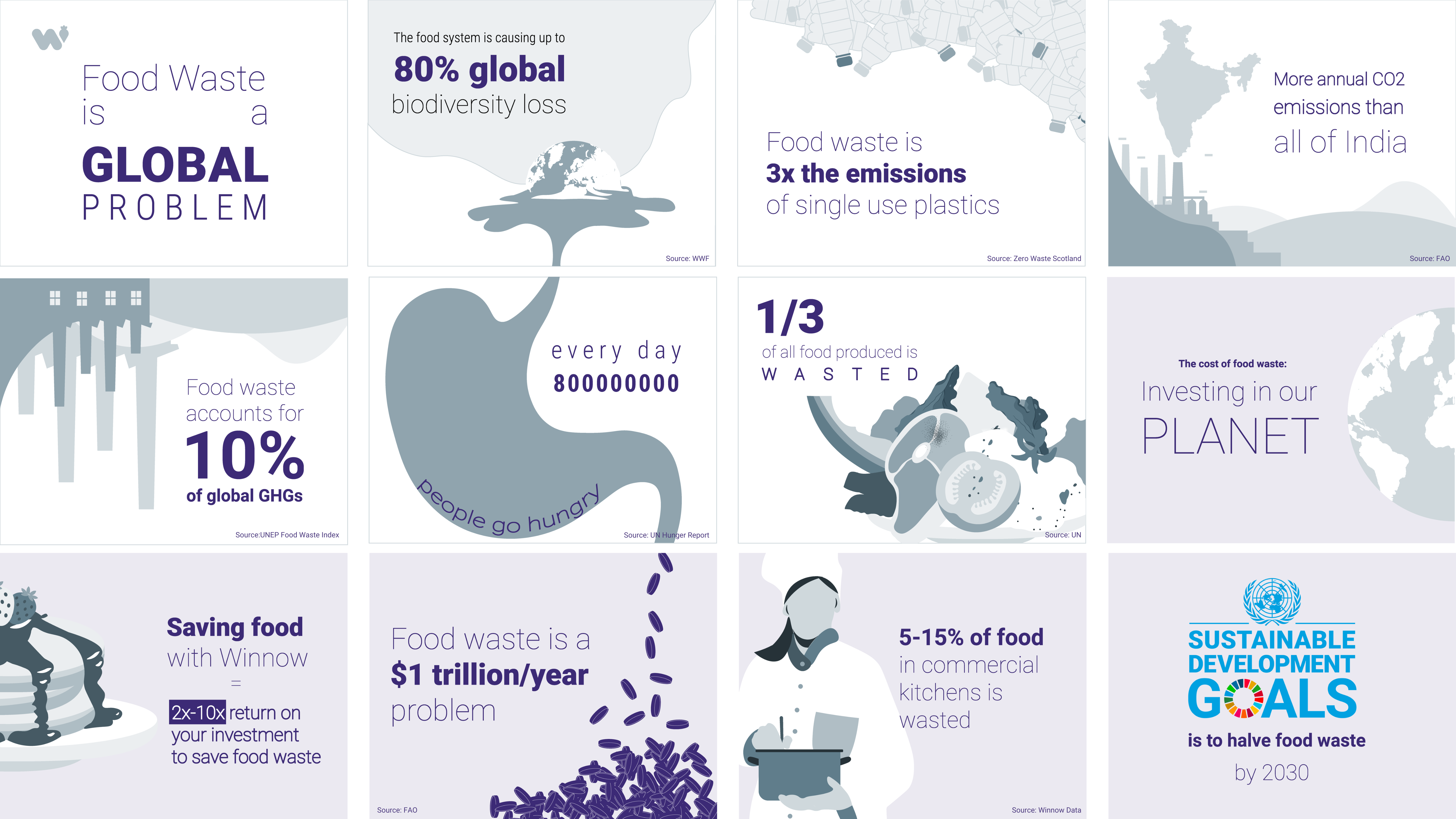Food waste is a global issue that not only affects our food system, but also has negative consequences for our planet's health. As Earth Day 2023 approaches, it is essential for each of us to recognize the significant role we play in addressing this challenge and preserving our planet’s health. This year's theme, "Invest in Our Planet," is a powerful call to action for businesses and individuals alike, urging us to put our resources, time, and effort into building a sustainable future.
Approximately one-third of all food produced for human consumption is lost or wasted, contributing to deforestation and the depletion of natural resources. Moreover, food waste is responsible for about 8-10% of global CO2 emissions , exacerbating climate change and its harmful effects.
Investing in food waste means investing in a problem that is estimated to be as big as one trillion USD. Kitchens waste 5-15% of food on average, meaning that any food waste saved from the bin with Winnow has profound effects on the bottom line of the business, with 2x-10x return on investment in the first year. In fact, research from the World Resources Institute found that hotels saved $7 for every $1 invested in reducing food waste, on average. Beyond the bottom line, investing in reducing food waste is investing in our planet’s health in several ways:
1. Conserve resources: The FAO reports that when we waste food, we also waste the resources used in its production, such as water, energy, and land.
2. Reduce greenhouse gas emissions: Decomposing food waste in landfills generates methane, a potent greenhouse gas that contributes to climate change. In fact, methane is more than 25 times as potent as carbon dioxide at trapping heat in the atmosphere. By reducing food waste, we can decrease methane emissions and help mitigate climate change.
3. Improve food security: Reducing food waste could help increase the availability of food, contributing to global food security and potentially alleviating hunger in vulnerable populations. At the moment, it is estimated that over 800 million people are hungry every day.
At Winnow, we are incredibly proud to work with 1000s of incredible chefs in 67 countries around the world, who are committed to eradicating food waste in their businesses and communities. Together, we’re so far saving 36 million meals per year, which is worth $42 million USD, equivalent to 61,000 CO2e.
Investing in our planet is a collective responsibility that requires action from individuals, businesses, and governments. This Earth Day, we’re proud of the global movement of chefs that are committed to building a sustainable future and make the necessary investments to ensure the health and well-being of our planet. Together, we can create a world where our planet is cherished and protected for generations to come.
If you’d like to see how investing in food waste solutions can affect your business’s bottom line, read our guide on how to isolate the financial impact of food waste management in your P&L here.








Comment on my blog